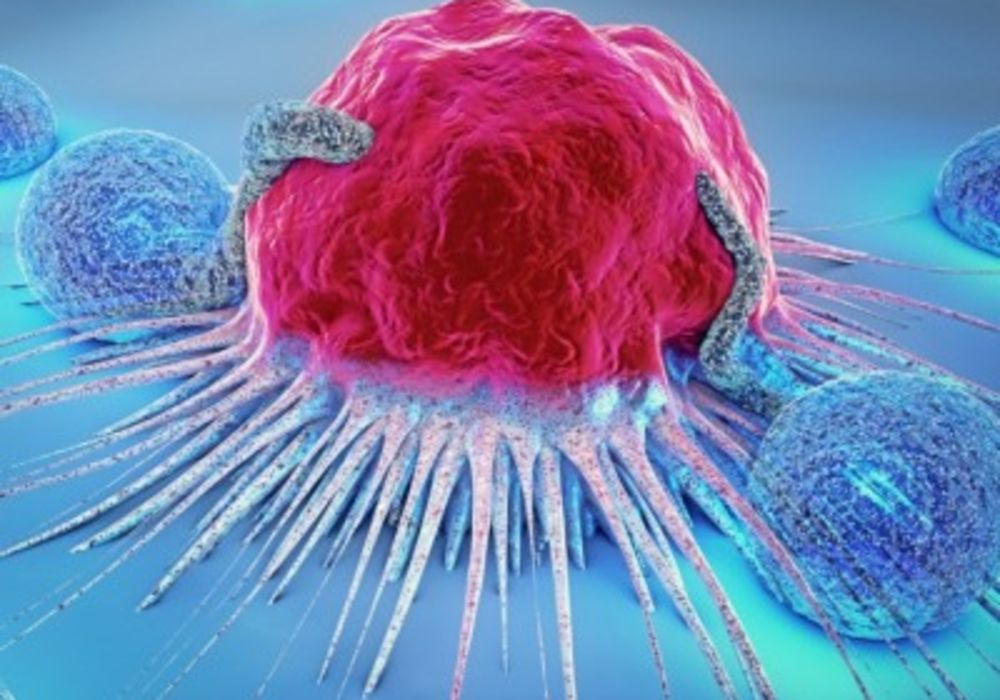A team of medical professionals has created a sophisticated artificial intelligence (AI) tool capable of forecasting the likelihood of breast cancer patients experiencing adverse effects post-treatment. Annually, approximately 2 million women receive a breast cancer diagnosis, making it the predominant cancer affecting women in many nations. While advancements in awareness, early detection, and diversified treatment strategies have elevated survival rates, numerous patients still grapple with severe post-treatment side effects.
Global Collaboration Spurs Development of individualised Care Solution
Collaborating across borders, a group of clinicians, scientists, and experts has formulated an AI solution to gauge the risk a patient might face regarding complications following surgical and radiotherapeutic interventions. Presently undergoing trials in the UK, France, and the Netherlands, this innovative technology aims to facilitate more individualised patient care. According to Dr Tim Rattay, a consultant breast surgeon and associate professor at the University of Leicester, although survival rates for breast cancer are on an upward trajectory, some patients confront lingering side effects from their treatments, encompassing issues like skin alterations, scarring, painful arm swelling known as lymphoedema, and even radiation-induced heart damage.
AI's Role in Guiding Treatment Decisions and Optimising Patient Care
Dr Rattay elaborated on their initiative to develop an AI tool that would equip healthcare providers and patients with insights into the potential for chronic arm swelling post-treatment. The objective is to guide treatment decisions by optimising radiation strategies to mitigate side effects for all patients involved. Trained on data from 6,361 breast cancer patients, the AI tool focuses on predicting lymphoedema occurrence within three years following surgery and radiotherapy. Patients flagged as high risk for arm swelling could be presented with alternative treatment modalities or supplementary support throughout their therapeutic journey. Dr Guido Bologna, an associate professor at the University of Applied Sciences and Arts of Western Switzerland, detailed the AI model's predictive prowess, utilising 32 distinct patient and treatment variables. These variables encompass factors like chemotherapy administration, armpit lymph node biopsy, and the nature of radiotherapy administered. The AI tool demonstrated an 81.6% accuracy rate in predicting lymphoedema and a 72.9% accuracy rate in identifying patients unlikely to develop it, culminating in an overall predictive accuracy of 73.4%.
Transparency and Predictive Accuracy of the AI Tool
Dr. Rattay highlighted potential interventions for at-risk patients, such as utilising arm compression sleeves during treatment to mitigate long-term arm swelling. Furthermore, this predictive data could inform discussions around the necessity of lymph node irradiation, particularly in cases where the benefits might be borderline. At the European Breast Cancer Conference in Milan, Dr Rattay emphasised the AI tool's transparency, classifying it as an "explainable AI" that elucidates its decision-making process. This feature not only aids clinicians in treatment planning but also facilitates transparent communication with patients.
Clinical Trial Plans and Expansion of AI Capabilities
The research team is poised to initiate a clinical trial named the Pre-Act project, targeting the enrolment of 780 patients for a two-year follow-up. Concurrently, they are expanding the tool's capabilities to anticipate other potential side effects, such as skin and cardiac damage. Dr Simon Vincent, Research Director at Breast Cancer Now, underscored the pressing need for treatment enhancements. He expressed optimism regarding the AI tool's potential to deliver personalised care, thereby reducing side effects like chronic arm swelling post-surgery and radiotherapy.
In other conference sessions, Italian researchers revealed that combined PET-MRI scans enhanced the detection of tumour spread in breast cancer patients, guiding alternative treatment decisions. Meanwhile, Dutch researchers reported favourable outcomes for young breast cancer patients receiving a low-dose radiotherapy boost post-tumour removal, coupled with comprehensive breast radiotherapy, maintaining a recurrence-free status over a decade.
Source: 14th European Breast Cancer Conference
Image Credit: iStock





















